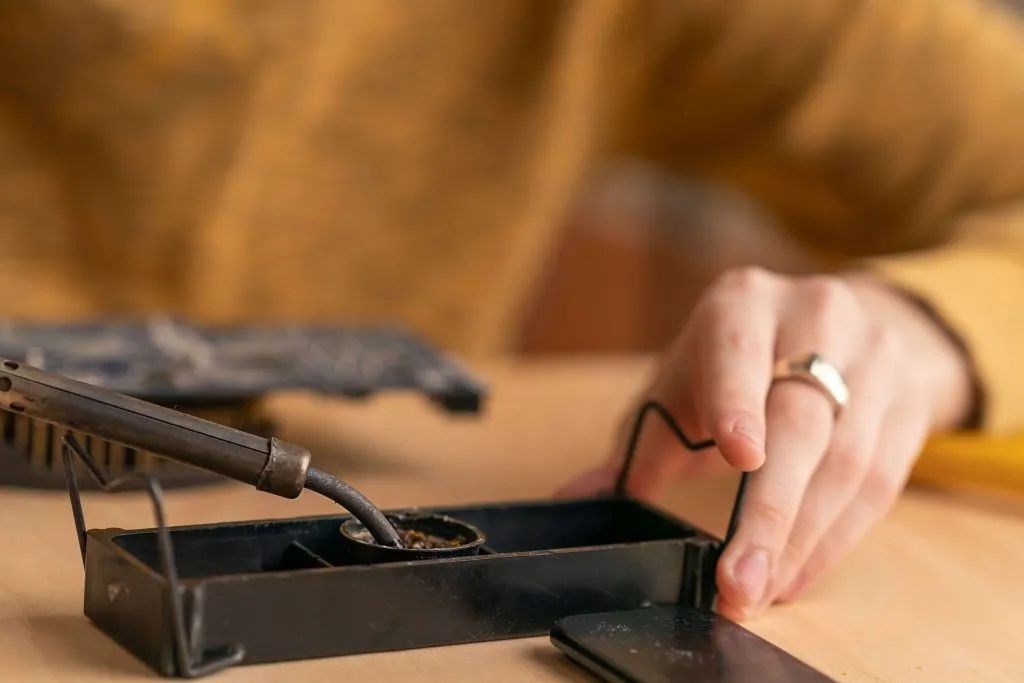What is a good soldering iron?
Published date: 10 November 2021

A soldering iron is the main tool used in the process of soldering. Its potential uses in electronics and metalwork are almost limitless. There is a great variety of soldering irons on the market. They range from the small to the large, from the inexpensive to the very costly. Finding a “good” one is a matter of choosing the right one for your needs.
How does a soldering iron work?
In the process of soldering, the heated tip of the iron melts the solder around the components that need joining. The solder than cools to room temperature. The bond solidifies and becomes permanent.
Soldering irons are usually plugged into a socket. The electric current heats the tip of the iron. Reaching the right temperature is critical to the process. The iron must get hot enough to melt the solder, but without damaging the components.
A soldering iron can also be used to reheat and separate a soldered joint. This process is called desoldering.
Key features of soldering irons
It is worth spending some time looking at the features of the various soldering irons on the market. Consider how these features line up with your needs and your budget:
- Size: Smaller irons are suited to fine work. Larger ones are ideal for the soldering of less delicate items. Size runs in parallel with the wattage of the iron.
- Wattage: For basic irons, a wattage of 40 watts is suited to general work. 15 – 25 watts is good for small PCB jobs. Wattage doesn’t determine temperature. It just indicates how quickly the iron heats up.
- Temperature control: Most irons will simply heat themselves to a preset level when powered. Advanced models include an adjustable temperature feature. This allows for improved control. It is a useful feature for lead-free soldering (requiring high temperatures) or heat-sensitive jobs (requiring low temperatures).
- Anti-static protection: Useful when working on advanced circuit chips. Such components may be vulnerable to static. However, most components used in home soldering are not this sensitive. They should not be damaged by static.
- Soldering stations: They include a temperature control system. They also provide a safe stand to put your hot iron, a sponge, and other accessories. Soldering stations are not necessary, but we recommend their use. They make soldering easier and safer.
Unless you want to stick to basic soldering, it might be a good idea to buy an expensive iron. Soldering irons are long-term investments. They can last for decades with good maintenance.
Make sure you can obtain spare parts for the iron you are purchasing. The tips wear down easily and will need replacing over time. A good iron should be compatible with a variety of tips.
Conro Electronics, as an electronic manufacturing and soldering systems distributor, offers a wide choice of soldering systems and accessories, from major manufacturers such as Metcal and Indium.
We’ll show you how to improve product reliability while increasing performance and lowering costs. Our team of technical support specialists will provide your company with dependable global supply, unrivalled efficiency, and superior technical support.
Feel free to contact us on 0208 953 1211 or send us an email to info@conro.com




Comments
There are currently no comments, be the first to comment.